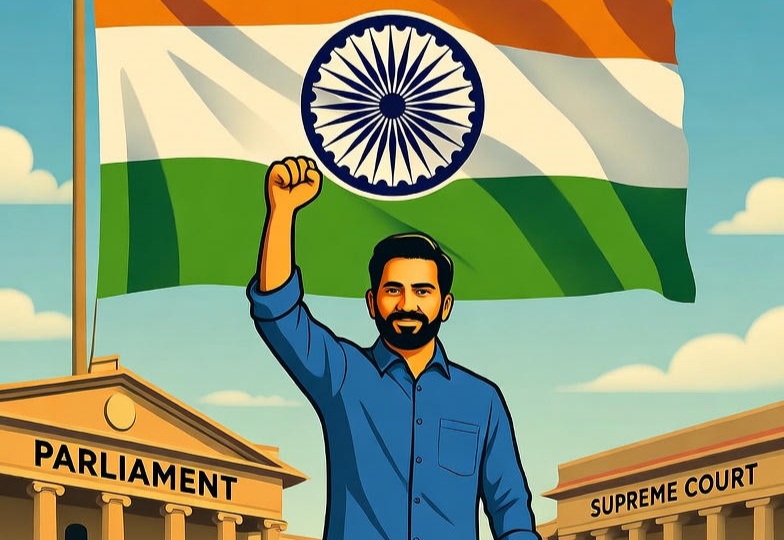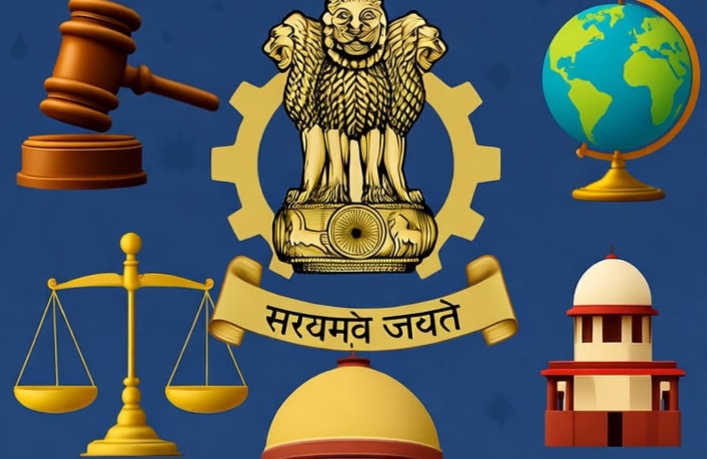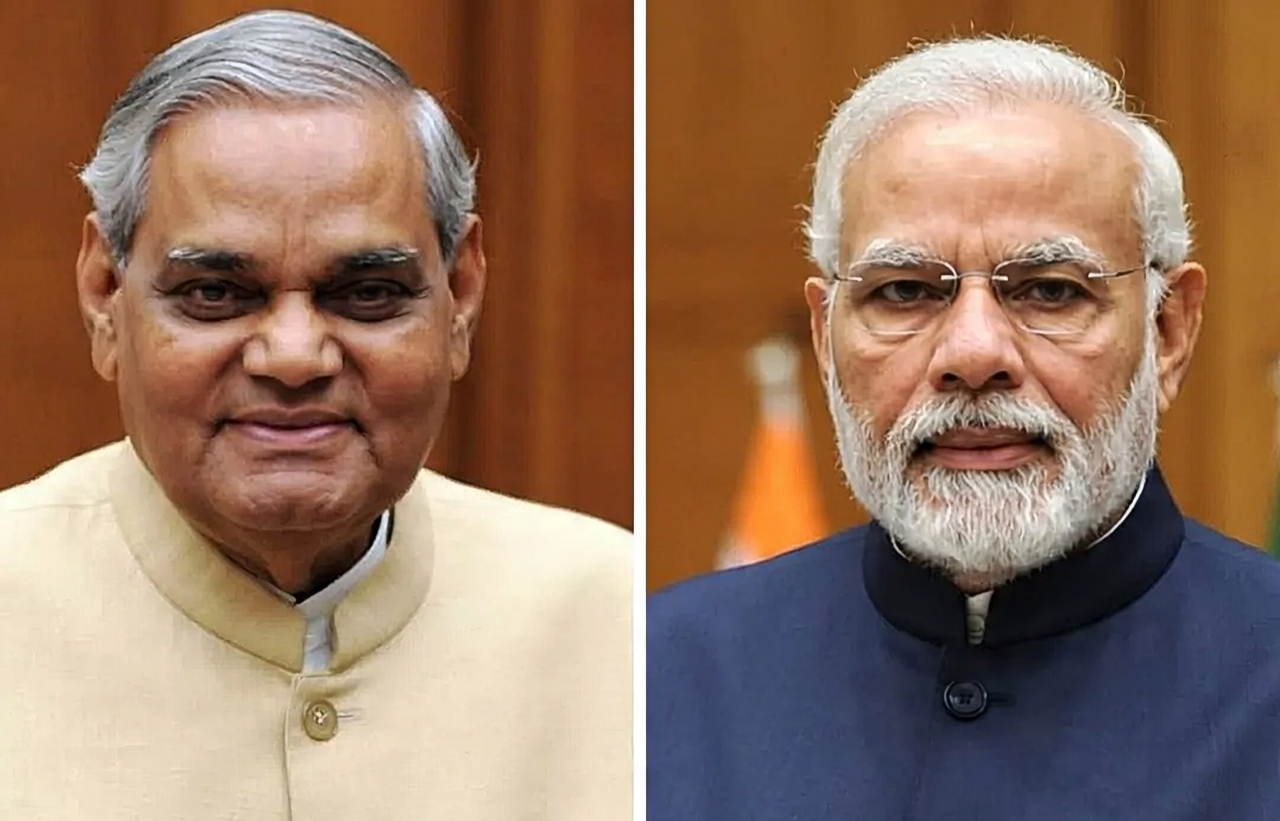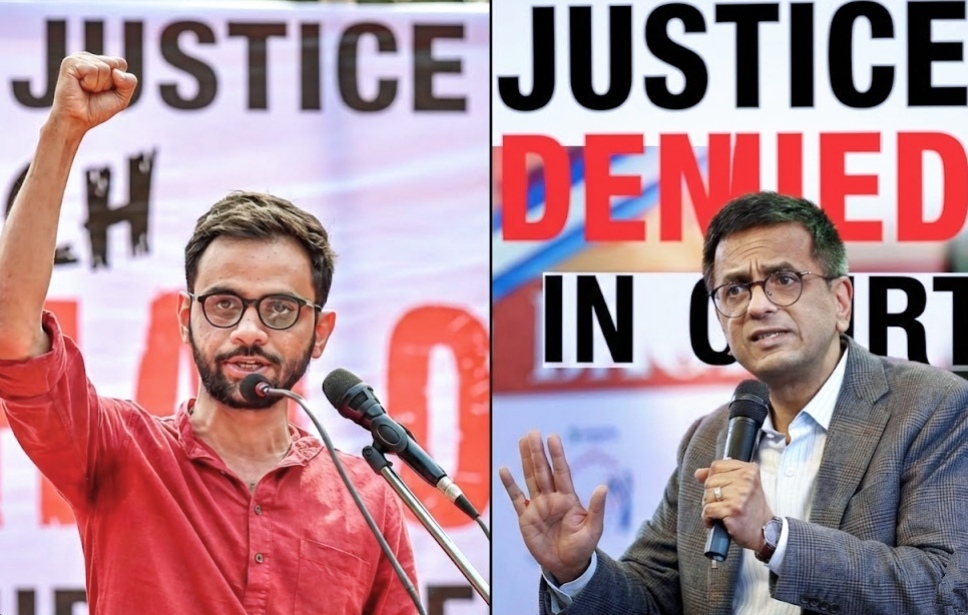 Najmuddin A Farooqi.
Najmuddin A Farooqi.
Is India Moving Toward a Presidential System or Is It Just Political Posturing?
In the years leading up to the last Lok Sabha elections, speculation particularly on social media suggested that India might be heading toward a presidential form of governance, possibly even doing away with general elections altogether. The question remains: was this an actual plan in motion, or merely a strategic signal intended to unsettle political opponents ? To understand this narrative, one must place it in a broader political and ideological context.
The BJP’s Self-Image and the Legacy of Vajpayee
The Bharatiya Janata Party has long projected itself as a party with a difference disciplined, corruption free and capable of effective governance, often positioning itself as the sole defender of Hindu interests.
Within this framework, late Atal Bihari Vajpayee stands as a towering figure. His leadership style was marked by statesmanship, inclusivity and an unwavering respect for democratic principles within and beyond his party. His practice of coalition dharma and his ability to maintain harmony even among ideological allies like the RSS earned him rare admiration from both supporters and opponents. Vajpayee remains, to this day a benchmark of democratic balance in the BJP’s history.
The Rise of Modi and the Politics of Perception
In contrast, the current political era under Narendra Modi represents a different chapter. Before 2014, Modi was largely absent from the national political stage. His rise to power was facilitated by a combination of factors a leadership vacuum, the weaknesses of opponents and a technologically advanced, emotionally charged campaign that transformed political communication in India.
Over a decade later, the “Modi magic” remains potent. His connect with the masses, relentless campaigning and carefully cultivated image as a decisive, almost divine leader have reinforced his dominance in Indian politics. Yet, beneath this enduring appeal lies a growing question: how sustainable is this model of politics built on personality and perception ?
The Turning Point: When Reverence Turns to Realization
Every form of idealization carries the seed of its own decline. When people begin to awaken from the dream of a larger-than-life leader, they start to question the very illusions that once inspired them. In a society that is increasingly aspirational and aware, the younger, educated and professional segments within the BJP itself may eventually push for change seeking more pragmatic, participatory forms of governance rather than personality-driven politics.

RSS, Strategy and the Politics of Fear
It is worth noting that within the broader Sangh Parivar ecosystem, strategies often operate on multiple fronts. Some wings engage in welfare and mobilization, while others deliberately or otherwise fuel fear and misinformation to consolidate ideological bases.
Even in 2014, there was no unanimous consensus within the RSS over the choice of Modi as prime ministerial candidate. For many ideological mentors, Modi was expected to advance the long-cherished cultural and civilizational agenda of the Sangh not to become an unchallenged authority himself. Thus, a paradox persists: the larger Modi’s stature grows, the more it unsettles his own ideological allies and political colleagues.

Opposition and Minority Voices: Between Resistance and Restraint
Meanwhile, the space for political opposition, civil rights advocacy and secular discourse is visibly shrinking. Some vocal opponents, in their eagerness to resist, risk amplifying the very narratives they aim to challenge.
For India’s minority communities, particularly Muslims, the current environment demands strategic patience. It may be wiser, at this juncture, to focus on economic empowerment, education, skill development and entrepreneurship. Political passivity, coupled with quiet resilience, may serve better than reactive engagement.
India’s civilizational essence marked by tolerance, nonviolence and coexistence has endured for millennia. Though momentarily overshadowed, these values will inevitably reassert themselves, ensuring that India’s democratic spirit not only survives but evolves.



